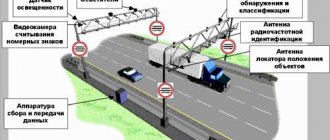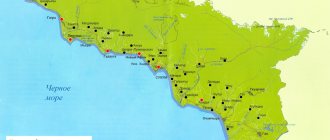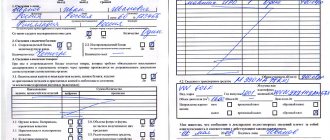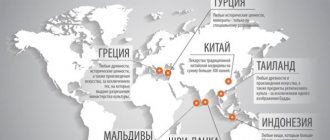By air, you can get to Spain through one of 16 airports, the largest are in Madrid and Barcelona.
Getting through Spanish customs is quite easy. It happens that it is more difficult to overcome bureaucratic obstacles at the Ukrainian or Russian border. Before traveling, you should carefully read the rules for travelers from official sources:
State Customs Service of Ukraine
Federal Customs Service of Russia
Photo: rtve.es
Documents for crossing the border of Spain
- Biometric or regular passport issued less than 10 years ago and valid for at least three months after the time of intended departure from the Schengen area
- If you have a regular passport, you need a valid Spanish visa
- Travel medical insurance
- Return ticket
- Documents confirming your route - hotel reservations, invitations, etc.
If you are on a short-term trip, most likely no one will ask you the last three points, but it is better to be safe. Remember that the visa-free regime is valid for 90 days out of 180 calendar days. If you travel frequently, there is a chance of becoming an unwitting violator of the visa-free regime. Be careful, because if you overstay your visa even by a day, you will receive a stamp prohibiting entry into the European Union.
Official website of the Spanish Consulate in Kyiv Hotline: +380 50 353 8977, not for information, only in emergency situations
Photo: Alfred Henz
To enter Spain, Russians must take with them:
- Passport valid for at least 3 months after the end of the trip, with a Spanish visa and two blank pages
- Documents confirming your place of stay in Spain - hotel reservations, invitation letters
- Return ticket
- Medical insurance
- For minors - a birth certificate or an international passport with a Spanish visa; if you are over 14 years old, and when traveling with only one parent, you need the notarized consent of the other to travel and a copy of his passport
Consulate General of Spain in Moscow Emergency numbers: + for calls from a landline in Spain +7 for calls from a mobile phone in Spain
What can be imported into the country
Everything that is not included in the lists of prohibited products can be taken with you if you have permits. Those planning to bring items from the red list need to prepare for trouble, fines and confiscation.
Cash
The amount of national currency you take with you is not limited, because there is no possibility of free exchange. But on the way back, banknotes that could not be spent may raise unwanted questions.
Misunderstandings due to a large amount in rubles will arise if they are converted into euros and their nominal value exceeds the established limits. Without special registration, you can take no more than 2.5 thousand euros with you.
Pets (if documents are available)
Pets can be imported and exported if you have the appropriate documents - permission from the sanitary service, passport and other official papers. A tourist can only take a microchipped or tattooed animal with him to Spain.
You can transport pets only if you have documents.
No more than 3 dogs or cats, 20 fish for the aquarium and 3 other pets, even a monkey and an ostrich.
Prescription drugs
Only with a doctor's prescription. The document must contain the signature of the doctor and the seal of the medical institution. It is unacceptable to export narcotic and psychotropic drugs from the country.
Spanish customs regulations
In Spain, selective customs controls are carried out in specially designated areas, or directly in cars entering the country.
The movement of money, bank checks, electronic means of payment in any currency in an amount exceeding €10,000 across the customs border of Spain is subject to mandatory declaration. This applies to both import and export.
Photo: es.wikipedia.org
Transportation rules
Spain is a distant, mysterious country that every Russian dreams of visiting. After all, what could be better than the warm sea, soft golden sand, bright sun and cloudless sky above your head? This is just a small part of what Spain has to offer you.
The Iberian Peninsula has an excellent climate and a varied landscape. There you can enjoy a beach, sightseeing, ski holiday.
It is better to get to Spain from Russia by plane. Just 5 hours and you will find yourself in the country of bullfighting, football, wild beaches, Gothic architecture and, of course, passionate flamenco. But for your vacation to be a success, you need to prepare for it in advance.
The theater begins with the hanger, and vacation begins with the formation of luggage. This should not be neglected. After all, the success of passing customs control depends on how you pack your things. All this is done in order to prevent the terrorist threat and ensure the safety of passengers during the flight.
Today we will tell you about the rules for transporting baggage when flying to Spain .
If you fly to Spain in economy class on an air flight, for example, you are allowed to take one bag or suitcase with you completely free of charge. At the same time, the dimensions of your luggage (including strap, side pockets and wheels) must not exceed 158 cm in three dimensions (length, width and height). This is how much space is allocated in the cargo compartment of an airplane for your bag.
In addition, the maximum weight allowed for free baggage is 23 kg .
If the weight of a bag intended for one piece of luggage exceeds 23 kg, but does not reach 32 kg, then you will have to pay for the excess weight. The fine is 60 euros.
Anyone flying to Spain in a higher class (the so-called “Full Tourist (Y, B) Business Fares”) can carry up to two suitcases for free, that is, take up two luggage spaces in the cargo compartment of the airliner, in official terms. The size and weight of each bag for this class must comply with the international standards specified in the paragraph above.
Business class passengers have fairly flexible rules for transporting baggage to Spain
. They are provided with three pieces of luggage free of charge, each of which has dimensions of 203 cm in the sum of three dimensions. Moreover, the weight of each suitcase can reach 32 kg, but not exceed it.
There is no additional charge for this.
If your bag weighs more than 32 kg, it will not be accepted on board under any circumstances. What Can You Bring in Baggage on a Plane to Spain? The total weight of all luggage is not taken into account. If the weight of one suitcase you are checking in exceeds 32 kg, and the weight of the second is significantly less, then you will have to transfer your belongings from one suitcase to another in order to bring them into proper condition, according to baggage regulations in Spain.
The dimensions of hand luggage must not exceed 115 cm in three dimensions: 40 cm in length, 20 cm in width and 55 cm in height). Handles, side pockets and wheels of the bag must be included in these parameters. For economy class, one such bag is allowed, for business class - two. In addition, hand luggage must fit into special luggage compartments in the aircraft cabin (above the passenger's head or under the seat).
Otherwise, you will not be allowed to bring your luggage on board.
In this case, you can take with you one of the following things: a handbag, a folder, a briefcase, a coat, a raincoat, a small blanket, an umbrella, a cane, crutches, a camera, a video camera, binoculars, a laptop, baby food in a special package, if you fly with a child.
Electronics that can be carried and used in the cabin except during takeoff and landing: MP3 or DVD player, pocket game console, laptop, digital player, cassette recorder, voice recorder.
Non-standard or oversized luggage refers to items that do not correspond to the dimensions specified for them in the luggage compartment. These may include equipment for skiing, golf, surfing, windsurfing, kitesurfing, diving, fishing, as well as bicycles, mechanical wheelchairs, firearms and other types of weapons (intended for sports). These items are subject to separate baggage regulations, both in Spain and other countries.
The cost of their transportation depends on the specific size and weight.
Remember that the success of your holiday depends, first of all, on yourself. If you are going to Spain or other countries, be sure to read the baggage rules established by the airline you choose. Remember, informed means forearmed.
Have a nice holiday!
Spain: import and export of animals
Pet dog and cat owners should take care of the following:
Chip or tattoo. The pet must have an individual identification tattoo, if it was done before July 3, 2011, or an implanted electronic chip.
Certificate or passport . Issued by veterinary authorities on vaccination in accordance with the rules established for each type of animal. You can read more in our review about the necessary documents for pets and on the website of the animal control center in Ukraine
The import of the following number of animals is considered non-commercial: dogs, cats, ferrets, birds and others - 5 animals, primates - 1 animal.
The Ministry of Agriculture has decided on the rules for the import of imported jamon :: Business :: RBC
According to the International Bureau of Epizootics data posted on the Rosselkhoznadzor website, in April 2021, animal diseases were recorded in 17 countries neighboring Russia and being its trading partners.
Outbreaks of African swine fever were recorded in Poland, Latvia, China, Mongolia, South Africa and Ukraine, bluetongue in Germany, bovine spongiform encephalopathy in Spain and Poland, and foot-and-mouth disease in South Korea and South Africa.
Rosselkhoznadzor, as follows from the bill, will also disinfect incoming vehicles at automobile and mixed checkpoints if there is a threat of introduction and spread of infectious animal diseases into Russia on the territory of neighboring states. Contagious animal diseases include, in particular, African swine fever.
RBC sent a request to the Ministry of Agriculture. A representative of Rosselkhoznadzor, which is subordinate to him, did not provide comments.
What restrictions already exist?
Rosselkhoznadzor did not respond to the request. The Ministry of Agriculture, its representative clarifies, does not plan to introduce additional restrictions on the transportation of livestock products by citizens from abroad for personal use.
Restrictions on Russians importing products from abroad for veterinary reasons are already in effect. The procedure for veterinary control when importing products of animal origin into the territory of the EAEU in luggage and hand luggage was approved by the decision of the Customs Union Commission on veterinary and sanitary measures in the EAEU from 2010.
The document contains the same requirements as those proposed by the Ministry of Agriculture: to prevent pathogens of infectious animal diseases from entering the territory of the EAEU, authorized bodies of the Union states must prevent citizens from importing goods from third countries for personal use (in hand luggage, baggage and postal items) from third countries without permission and a veterinary certificate, with the exception of up to 5 kg of packaged finished products from countries where the epizootic situation is safe.
Such a norm is standard practice for a number of countries where “a tourist cannot import a single kilogram” of meat or dairy products for reasons of biological safety, says the president of the Meat Union, Mushegh Mamikonyan.
Veterinary control always accompanies passport control at the border, and the amendments proposed by the Ministry of Agriculture clarify the technical method for disposing of seized products, he believes: “They took it away, but what to do with these products? It cannot be thrown away, because the point of this control is to ensure that these products do not end up in nature or in garbage containers,” explains Mamikonyan. In his opinion, before prohibiting citizens from importing products for personal needs, it is necessary to resolve a number of other issues, for example, to more clearly indicate in the list of sanctioned products those goods that Russia still buys. “Dried products are not subject to sanctions and are legally available on the market. Such volumes and distribution of thermally unprocessed products, in my opinion, carry much greater risks than what tourists can bring in factory packaging,” Mamikonyan points out. The bill developed by the ministry establishes a mechanism for Rosselkhoznadzor to operate recycling furnaces and disinfection barriers at checkpoints, confirms a representative of the Ministry of Agriculture.
Import and export of food products in Spain
The import of meat and dairy products is prohibited. The only exception is powdered milk for baby food in manufacturer's packaging. Products that do not contain meat or milk are allowed to be imported at the rate of 1 kg per person.
Sanitary control is carried out if aviation crews report the presence of sick people on board. Phytosanitary control is carried out by airport staff when food, plant seeds or soil are found in passengers' luggage. Medicines and medical supplies brought into Spain by foreigners for personal use are not subject to sanitary control and are checked if their quantity exceeds reasonable limits.
The list of plants and plant products prohibited for import into EU member states is contained in Annex III of Royal Decree 58/2005 of 21 January 2005.
What can be transported across the Spanish border, subject to mandatory declaration: live plants without soil, with an official phytosanitary certificate, fresh cut flowers in quantities of more than 6 units, fresh fruit in quantities of more than 1 kg per person.
Not subject to declaration: small fruits such as cherries, strawberries, raspberries, grapes weighing up to 1 kg. Also, medium-sized fruits: apricots, plums, peaches, nectarines, citrus fruits, pears, apples at the rate of 3 units per person. Tropical fruits (mango) - 2 units per person and fresh vegetables weighing more than 1 kg per person.
Reminder for tourists
Additional rules:
- Spanish customs officers may ask the tourist to turn on any technical device (this is done in order to demonstrate that the item is not a container for something else);
- alcoholic beverages can only be carried in luggage;
- All drugs and products that may raise questions must have special stamps. The more there are, the better.
All rules apply only to Spain. In the Canaries, customs restrictions are slightly different. You can learn about applying for and obtaining a visa to the Canary Islands by following this link.
Transporting alcohol and tobacco products across Spanish borders
Passengers arriving on mainland Spain, including the Balearic and Canary Islands, may bring with them:
Tobacco products (passengers over 17 years of age): 200 cigarettes or 100 cigarillos, max. 3 grams each, or 50 cigars, or 250 grams of smoking tobacco, or a proportional assortment.
Alcohol (passengers aged 17 years and over): 1 liter of alcohol over 22%, or undenatured ethyl alcohol over 80%, or 2 liters of spirits/wine aperitifs or similar drinks less than 22% ABV, or a proportional mixture of these products. Additionally, 4 liters of wine and 16 liters of beer are allowed
Photo: Alexas_Fotos
From Spain you can take out for free:
- up to 800 cigarettes
- 400 cigarillos, max. 3 grams each
- 200 cigars
- 1 kg smoking tobacco
- 10 liters of alcohol with an alcohol content of more than 22%
- 20 liters of alcohol, with an alcohol content of less than 22%
- 90 liters of wine, but not more than 60 liters of sparkling wine
- 110 liters of beer
General customs rules and restrictions
Spanish Customs positions itself as a loyal and impartial institution that is initially friendly towards tourists. To maintain this attitude, it is enough to comply with a small list of requirements regarding what is prohibited from being imported into or exported from Spain. This is not a formality.
Customs requirements must be observed. The requirements must be observed without reservation; there are even some prohibitions that apply to age categories (a child cannot carry what an adult can carry). State Customs Service of Ukraine Federal Customs Service of Russia Official website of the Consulate of Spain in Kyiv Consulate General of Spain in Moscow
More details about what cannot be taken out of the country
No less strict restrictions exist when leaving the country. In some cases, documents are required certifying that the products were purchased and transported for personal use. Uncharged electronic devices may be confiscated because they are checked by customs. Liquids have special packaging requirements.
All violators expect trouble - from confiscation of products (if there are no documents, it is traveling in inappropriate form, carried by a child) and to criminal liability.
Limits on the number of cigarettes and wine
The export of alcoholic beverages is limited. This applies to tourists who bring alcohol as a souvenir. There are no restrictions on transporting drinks with an ethanol content of less than 24%, but if there is a large amount in luggage, they may require a document certifying that all this was purchased for personal use. The restriction applies starting from 20 liters of spirits and 90 liters of wine.
You can carry no more than 800 cigarettes and 90 liters of wine.
No more than 5 liters of alcohol from 24 to 70% can be exported, and products over 70% cannot be exported from Spain and will be confiscated. Alcohol is carried in luggage. If the need for it arises after passing control, all that remains is to purchase it at the Duty Free store. You can carry no more than 800 cigarettes.
Amount of currency in hand
A large amount will have to be declared.
An amount from 2.5 to 8.4 thousand euros will have to be declared. If the cash exceeds the required limits, customs will want to see the documents drawn up according to the rules.
Creative and antique objects
Under no circumstances should you try to export objects of art that have historical or artistic significance. Even if they have no value other than nominal value, customs may have doubts. Special permission must be obtained, otherwise the purchase will be confiscated and not allowed to be exported from the country.
You cannot export creative objects.
Medicines without a permit
There are no restrictions on the amount of medicines exported from the country. Spanish customs regulations do not specify how many foreign currencies and packages a passenger can carry with him. The only restriction for air travel is placing them in luggage. You can only take medications with you to the salon for which you have a doctor’s prescription.
This does not mean that it is allowed to place a pharmacy in a suitcase or trunk. Customs control may object to the transportation of large quantities of medicines.
Medicines and drugs.
Medicines containing narcotic and psychotropic substances require travel permission. Such permission can be obtained from the Spanish Agency for Medicines and Medical Devices by sending them a request by email
Restrictions on food and drinks
Water and other liquids can be taken out no more than a liter. They must be packed in small containers and placed in a special bag, which is sold at the airport. They must be checked in as luggage, and if purchased at Duty Free, it is prohibited to open and consume the products not only at the airport, but also on the plane.
Liquids can be taken out no more than a liter.
There are no special bans on the export of food for personal consumption in the country, but Rospotrebnadzor may have them on Russian territory.
Exotic animals
As for exotic animals, you should first clarify information about the required species. There is a separate list of those who cannot be exported from Spain even if they have all the permits. However, it may differ in enclaves, on islands and on the mainland.
Exotic animals.
What can you freely bring from Spain?
Alcohol and food in quantities of no more than 5 kg per person do not meet with objections either at Russian or Spanish customs.
The absence of restrictions on such products in Spain does not mean that there will be no obstacles to transportation within the territory of the Customs Union.
Therefore, before starting your trip, it is better to find out which products are restricted or prohibited for import into the Russian Federation.
Everything that was purchased for personal use
Allowed for transportation is everything that is valued according to the quantity purchased for one’s own needs. Products must be in their original packaging, alcohol must be unopened.
If any comments are made, they can be corrected on the spot by purchasing the required containers at the airport.
Experienced tourists do not recommend buying the following products in the country if you do not have special skills to distinguish a natural product:
Gold
Furs
Transportation of souvenirs and personal belongings
Without paying customs duties, you can import commercial goods into Spain with a total value of:
- 300 € per person when crossing the border by land
- 450 € – by air or sea transport
- 150 € – for children under 15 years old, regardless of the type of transport
If the cargo is imported for commercial purposes, a customs declaration is filled out for it.
Technical drawings, plans, artistic or historical values are declared when exported from the country.
Photo: flora grauso
What else can you bring based on reviews from tourists?
Many tourists in their reviews mainly mention magnets, plates, leather boxes, in general it’s boring. But there are also aesthetes of their craft who bring more unique things. Children will be delighted when they see Spanish dolls . They are especially pleasing, for obvious reasons, to girls. football-themed souvenirs . Regardless, the traditional board game Parchis .
If you visit the Dali Museum in Figueres, be sure to buy a reproduction of his creations .
Keys from Catalonia - like a fresh idea for a souvenir from Spain
All useful information about the best holiday in Spain is posted in our section on planning a trip with tips and other nuances.
Driving into Spain by car
When entering Spain in a car with a license plate from another country, you must have with you:
- international driver's license
- vehicle registration certificate
- Green Card insurance (green card)
For all categories of citizens, temporary import of a car is allowed for a period of 6 months, for students - for the period of study, for seasonal workers - for the duration of work.
Photo: 5459357
It is allowed to import into Spain the fuel contained in a regular tank and an additional 10 liters of fuel. If you import cars into Spain, you will need to pay taxes on value added, on movement and on the purchase of a registration number, as well as municipal tax.
Ukrainian and Russian driving licenses are valid in Spain. Those who have a residence permit must exchange their license for a Spanish one after 6 months. In accordance with the agreement between Ukraine and Spain on the mutual recognition and exchange of national driver's licenses, the exchange is carried out in a simplified manner, without passing additional exams.
You can choose what to visit in the country when traveling by car on the page of attractions in Spain.
Tax free
Travelers have the right to tax free if the amount of goods purchased in one store does not exceed 90.16 euros. Not all stores adhere to this rule, so this issue needs to be clarified in advance.
VAT refunds can be issued at a Spanish airport. The maximum period is up to 90 days from the date of purchase of the goods.
You can watch the video below on our YouTube channel about shopping and discounts in Barcelona - prices in Barcelona for clothes in 2019
Prohibited items and substances
The list also includes standard prohibited things:
- drugs and narcotic-containing drugs, other than essential drugs approved by AEMPS
- firearms, ammunition, explosives
- pornography
Be sure to pay attention to the rules of the airline you are flying with if you are traveling by plane!
Photo: alexeva8
How to protect yourself when boarding a plane
To avoid problems when boarding a plane, follow these simple rules:
- Liquids in hand luggage must be packaged in transparent 100 ml bags with a total volume of no more than 1 liter. This restriction does not apply to medications and baby food.
- Sharp objects that could be used as weapons are not allowed
- You can take on board goods purchased in duty-free, provided that the security service gives you a special stamp about the purchase
- Explosive, flammable or toxic substances are prohibited on board the vessel in any form. Neither in the cabin nor in checked baggage
Customs rules when leaving Spain
Anyone who regularly crosses the Spanish border should know the customs rules for exporting products purchased here from Spain. First of all, we are talking about tourists who return home with suitcases of gifts and souvenirs. Violating baggage rules in Spain can result in unpleasant surprises at a Spanish airport.
Alcohol
Spanish customs regulations set restrictions on both the import and export of alcoholic beverages from Spain. If you decide to bring a bottle of Rioja or Cava as a gift, don’t worry, the law does not establish restrictions on the export of drinks with an alcohol content of less than 24%. However, if we are talking about drinks with an alcohol content from 24 to 70%, the export of no more than 5 liters per person is allowed. The export of drinks with an alcohol content above 70% is prohibited.
Carriage of alcoholic beverages is only possible in luggage, with the exception of products purchased in Duty Free stores after passing through customs and passport control.
Liquids
Spain's 2015 customs regulations set strict requirements for the transport of liquids in aircraft cabins. In this case, liquids are understood as:
- water;
- gels, such as shower gel;
- perfume;
- creams;
- deodorants and shaving foam;
- aerosols and other products that can be transported in liquid form.
Spanish customs regulations allow the transportation of liquids with a total volume of up to 1000 ml, with each jar no more than 100 ml. Everything should be packed in one 20x20 plastic bag. This package can be purchased directly at the airport.
If you purchase liquid products from Duty Free stores, they must be packaged according to regulations. It is prohibited to tamper with the packaging or open these products inside the aircraft cabin.
Electronic items
According to Spanish customs regulations 2015, all electronic items (mobile phones, tablets, laptops, cameras, etc.) that you wish to carry in your hand luggage are subject to inspection. Don't forget to charge the batteries. If a Spanish customs officer finds that the device does not turn on, he may confiscate it.











